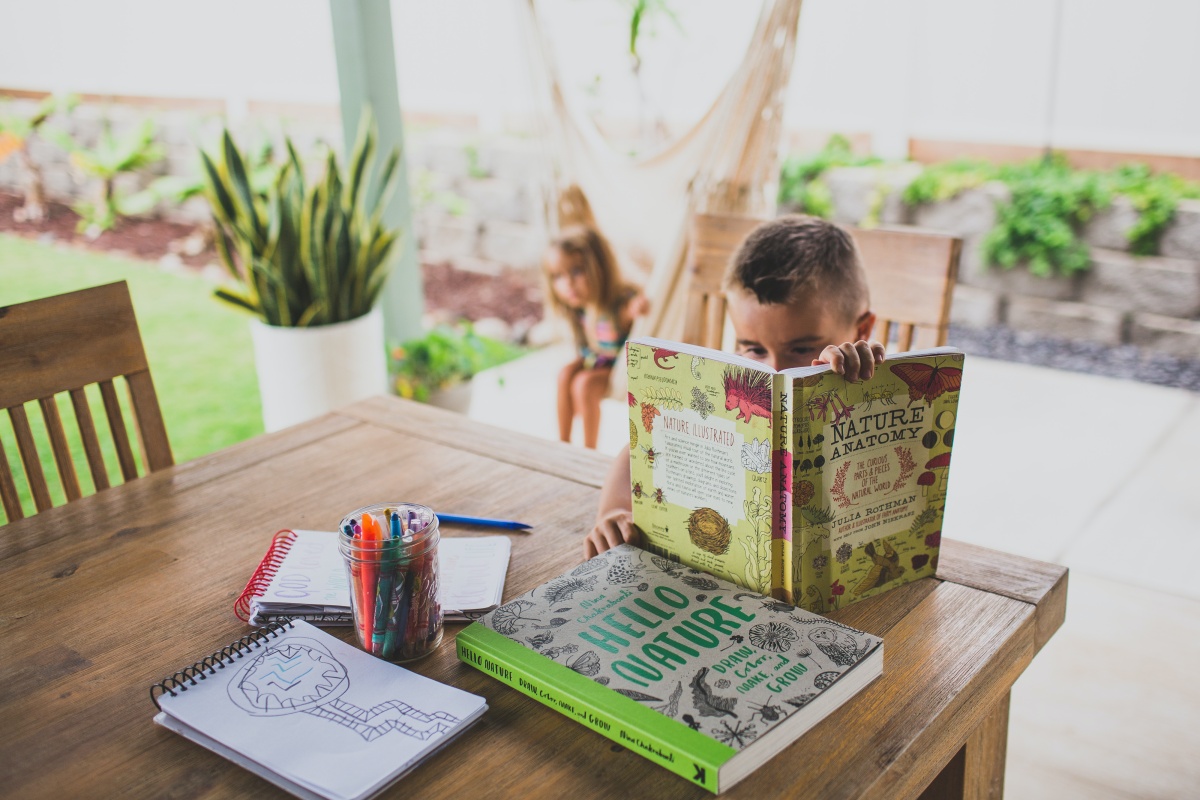
On March 16, 2020, I posted a photo of my wife, Jenna, and me with the caption:
“Here we are! After 20 years, @jnascott and I have come out of teacher retirement for the Scott Family School of Social Distance Learning!” #covid_19
Just like that we were no longer “just” parents of a child with special needs.
We were also teachers of a child with special needs.
Of course, this was in addition to . . .
- parenting and helping educate our other kids.
- working full-time jobs.
- keeping up the house.
- being married to each other.
We might have been teachers before, but it had been a minute.
And playing the roles of teacher, and activity director, and parent for a child with special needs is—let’s just say—complicated.
Going from parents to parents AND teachers
Off the bat, our son doesn’t love school. One might say it’s his nemesis. The situation is complex, but basically, motivation and focus to learn don’t come naturally to kids with all of my son’s special needs.
At school, it takes a whole team of people to keep him on track and an IEP (Individualized Education Program) to guarantee and standardize care no matter who the teacher or what the class.
At home, we get the IEP. We get the modifications. But we don’t get the team. We have us.
We weren’t quite sure how this would go. But here we are at the time of writing this, we’re a few weeks in. All work completed. And we haven’t (completely) lost our minds.
A few things that have helped us and might help you as well:
1. Information
First off, know your rights as a parent of a child with special needs during this time of the pandemic. The US Department of Education as well as local governments have published parents and student rights for what schools need to provide during this time.
We’ve found this super helpful in knowing what we can request from our local schools. Many services provided under FAPE (Free Appropriate Public Education) and your IEP stay in place whether you’re at home or in school.
2. Preparation
Get the day organized before your child wakes up. Depending on how your school is offering you content, do this either the night before or early in the morning.
Early mornings might sound awful, but use the quiet as a time to get your own thoughts prepared before heading into the rest of the day.
3. Structure and flexibility
Follow the same schedule every day. Including the order when you work on certain subjects, when you take breaks, eat lunch, etc. But while structure is needed so is flexibility. Just like in school, not all days go to plan and sometimes you need to pivot.
If it’s easier to finish ELA on the couch, finish it on the couch. Play music while you do science? Go for it. Need to take a sensory break mid-lesson to stay focused? Don’t fight it; take the break.
None of this is normal, and you can figure out the rules as you go.
4. Visual Checklist
To help your child navigate their day, create a visual checklist like one they might have at school. We use a whiteboard and different colored markers to differentiate between subjects.
Keep it consistent, so your child learns the routine. This also helps you keep track of what’s completed without having to look back at any emails or communication from school.
5. Communication
Stay in constant communication with your child’s lead teacher about what’s working and what’s not working. Our teacher has been great at sending adapted content based on our feedback.
Everyone is learning how this works as we go. Use this as a chance to help your child’s teacher understand how your child best learns and processes information. When you offer the suggestions with grace, everyone feels like a team.
6. Fun
Keep fun in the equation. School is not necessarily fun for our kids, and the work they’re doing may not be their preferred way of learning. Be sure to have fun along the way. Ask for fun videos or games that can also reinforce what they’re learning.
7. Manage expectations for your child
Consider what they can really accomplish in a day, and don’t stress them out trying to get everything done. Do what you can and go from there. You’re not homeschooling under normal conditions. Teachers know that as well and are offering grace.
8. Manage expectations for you
If you’re a working parent, consider what you can realistically accomplish in a day with everything else happening. You can’t complete what you could under normal circumstances; don’t try. You’ll only frustrate yourself. Just keep working and moving forward. Offer yourself grace, and let yourself off the hook.
Most of the time you will still feel like you’re making this up as you go. That’s okay, we all are. Know that you’re not alone. Reach out to the special needs community. We’re here and willing to help however we can.




